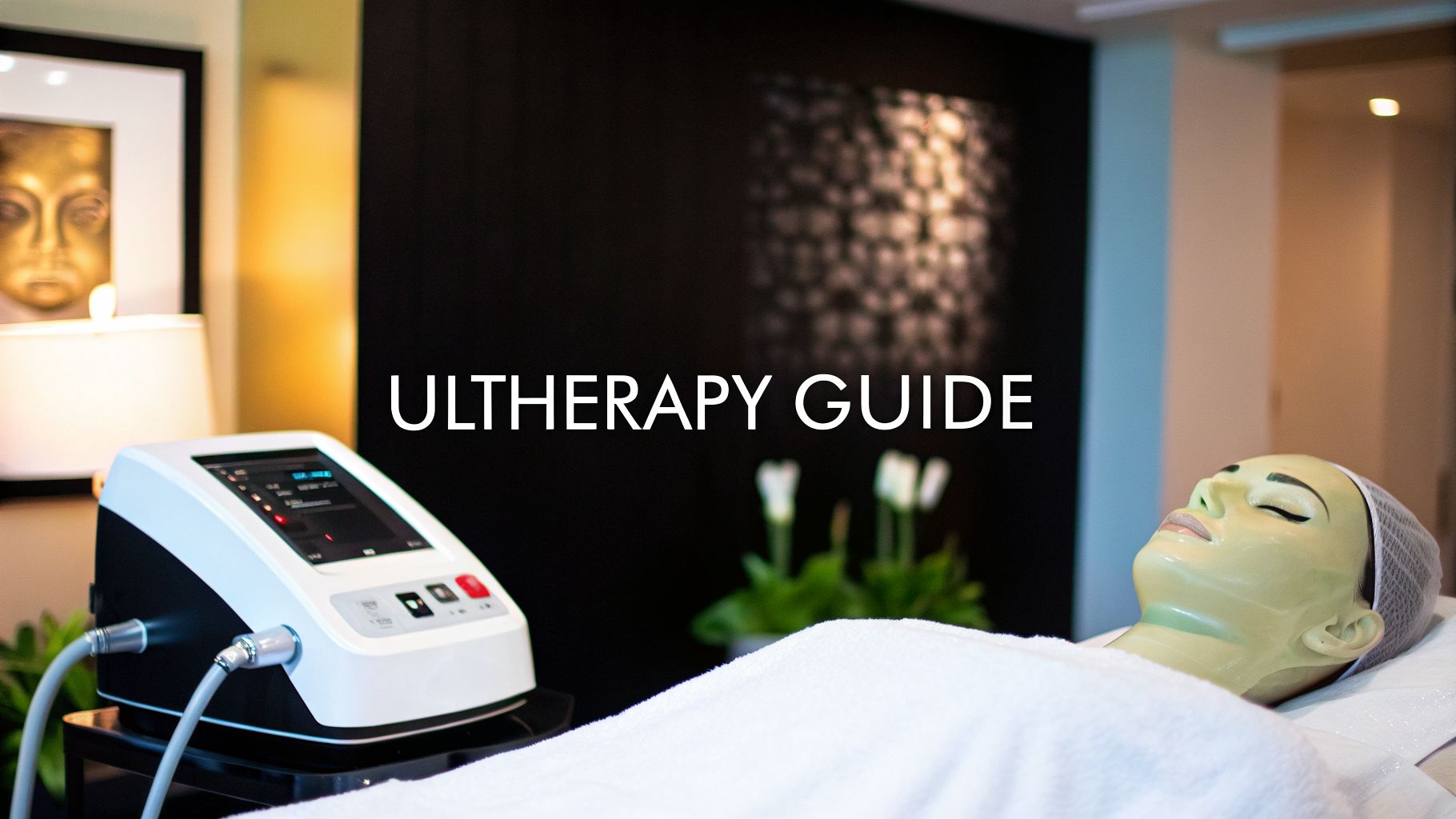
February 21, 2026
How to Prevent Keloid Scars After Surgery A Definitive Guide
Discover how to prevent keloid scars after surgery with our definitive guide. Learn expert strategies for risk assessment, surgery, and post-op scar care.
Nov 13, 2025

The consultation is a foundational step in cosmetic and plastic surgery. It allows you to discuss your aesthetic goals and expectations directly with a board-certified surgeon. This ensures both safety and satisfaction by tailoring the procedure to your unique needs and health profile.
Preparation is essential to maximize the value of your consultation. You should research your desired procedure, prepare a list of questions, and gather detailed medical history including medications and allergies. Being informed and ready not only builds confidence but also helps you engage meaningfully during the appointment.
A typical consultation lasts between one to two hours. It begins with check-in and a medical history review, followed by a focused discussion with your surgeon about goals, risks, and treatment options. A physical examination will be performed to assess suitability, and pricing and scheduling details are covered. You will leave with a clear understanding and space to make a thoughtful decision about your surgery.
Preparation is foundational for a productive and reassuring plastic surgery consultation. Patients are encouraged to thoroughly research cosmetic surgery procedures and the qualifications of potential surgeons. This research helps set realistic expectations and enables meaningful discussion during the appointment.
Compiling a detailed medical history review is crucial. Patients should disclose all past and current health conditions, medications, supplements, allergies, and lifestyle factors such as smoking. Complete transparency supports the surgeon in assessing risks and customizing the treatment plan safely.
Formulating a comprehensive list of questions beforehand empowers patients to address important aspects such as the surgeon’s credentials and experience, the procedure’s benefits and risks, recovery timelines, and facility accreditation protocols. Clarity on these topics fosters confidence and informed decision-making.
Bringing visual references, like photos reflecting the patient’s aesthetic goals, enhances communication and helps the surgeon understand expected outcomes, ensuring alignment in planning.
Financial planning is another integral step. Understanding the full scope of costs—including surgeon’s fees, anesthesia, facility charges, and aftercare—is essential. Patients should inquire about payment options and financing to avoid surprises and plan accordingly.
Finally, having a trusted support person accompany the patient provides emotional support, assists in information retention, and helps raise additional questions during the consultation. This presence contributes to a more comfortable and comprehensive evaluation experience.

Patients begin their consultation by checking in at the front office, where they may complete or submit necessary forms electronically. This step ensures that administrative details are in place before the medical review.
A medical assistant or nurse reviews the patient's complete medical history. This includes any current or past medical conditions, medications, allergies, and lifestyle factors such as smoking or drug use. This review is critical to identify any potential risks or complications related to surgery, as part of the medical history review.
The core of the consultation is a detailed discussion with the board-certified plastic surgeon. Patients share their aesthetic goals and expectations candidly. The surgeon listens attentively, helping to set realistic expectations and explain available surgical and non-surgical options tailored to individual needs, as advised in questions to ask your plastic surgeon.
The surgeon performs a focused physical examination of the treatment area, assessing factors like skin elasticity and facial structure. Measurements may be taken to aid in surgical planning. Photography might be used to document the area for medical records, all explained under the physical examination by surgeon and medical photography during consultation.
To help patients evaluate the surgeon’s skill and aesthetic style, before-and-after photos of previous patients are reviewed. This step provides visual confirmation of potential results and helps build patient confidence.
Surgeons detail the possible procedures suited to the patient's goals, explaining the benefits, risks, estimated recovery times, and potential complications. Patients are encouraged to ask questions to ensure they fully understand all aspects, consistent with risks and surgeon credentials and alternative procedures discussion.
Following the clinical discussion, a patient coordinator assists with scheduling surgery dates, addresses logistical questions, and provides information on consultation fees, financing options, and follow-up care plans.
Typically, consultations last between one and two hours, allowing sufficient time for thorough discussion, examination, and patient education, as outlined in consultation duration.
Patients can expect a comprehensive, personalized, and transparent consultation process aimed at ensuring facility accreditation, safety, setting realistic goals, and establishing a clear path forward for their cosmetic surgery journey.

A crucial part of the cosmetic surgery consultation involves clear communication of aesthetic goals. Patients are encouraged to share their vision openly, often bringing reference photos to illustrate desired outcomes. This helps the surgeon understand the patient’s expectations and tailor the treatment plan accordingly. See also Facial cosmetic surgery consultation.
Surgeons provide detailed explanations of the procedures and techniques involved, ensuring patients know what to expect. This includes discussing the benefits and possible risks or complications associated with the surgery or non-surgical treatments. For more on this see Your consultation checklist: essential questions to ask before your plastic surgery procedure.
An important focus is the recovery process and timeline. Surgeons explain post-operative care, the typical duration of recovery, and the need for support during this period.
Setting realistic expectations is emphasized to ensure patient satisfaction and safety. Surgeons also discuss how potential complications are handled, demonstrating their preparedness and professionalism. This transparent dialogue helps build trust and confidence, reassuring patients throughout their cosmetic surgery journey. For comprehensive preparation tips, refer to Preparing for Your Cosmetic Surgery Consult.
Patients preparing for plastic surgery should have a clear understanding of all costs involved. Pricing typically includes the surgeon’s fees, operating room costs, anesthesia, any devices or materials used during the procedure, and follow-up care appointments. A detailed and comprehensive cost quote is crucial to ensure transparency and avoid unexpected charges later. For more information, see the pricing breakdown for surgery.
Consultation fees generally range from $120 to $240 and are often deductible from the total surgery cost if the procedure occurs within a predetermined timeframe (usually 90 days). For reconstructive surgeries covered by insurance, patients should anticipate co-pays and responsibility for any expenses not covered by their plan. See Consultation Fee Details for further details.
It is essential to discuss financing options and payment plans during the consultation to facilitate affordable care. Patients are advised to be cautious of unusually low or incomplete fee quotes, as these may exclude necessary expenses, compromising both financial planning and care quality. Clear, upfront communication about all financial aspects helps patients make informed decisions with confidence. Additional guidance on cosmetic surgery financing options and financial planning for cosmetic surgery can also be helpful.

Patients preparing for cosmetic surgery should stop smoking before surgery and refrain from alcohol consumption several weeks before their procedure. This precaution helps minimize complications and supports faster recovery. Additionally, arranging post-surgery transportation is essential, as patients will not be able to drive themselves home after surgery. Having a responsible adult stay with them for at least the first night post-operation provides critical support during the initial recovery phase.
Filling prescriptions before procedure, such as pain medication or antibiotics, prior to surgery prevents delays in managing post-operative needs. Patients are advised to pack for cosmetic surgery a bag with personal essentials, insurance documents, and identification, while choosing loose and comfortable clothing to wear on the day of surgery.
It is crucial to follow fasting instructions before surgery and adhere strictly to medication instructions given by the surgical team, which commonly include fasting after midnight before the procedure. Understanding and anticipating the recovery timeline helps patients plan for adequate rest and any necessary assistance, promoting a safer, more comfortable healing process.

Patients preparing for cosmetic surgery should start by confirming that their surgeon is board-certified by reputable organizations such as the American Board of Plastic Surgery or the American Board of Facial Cosmetic Surgery. This certification assures that the surgeon has met rigorous training, experience, and safety standards.
It is essential to ask about the surgeon's experience, including how frequently they perform the specific procedure of interest. High procedure volume is often linked to improved outcomes and greater expertise. Reviewing before-and-after photos of previous patients helps evaluate the surgeon’s technical skill and aesthetic style, especially when comparing to patients with similar features and goals.
Facility accreditation is another critical factor for safety. Patients should verify that the surgical center or hospital is accredited by recognized agencies and inquire about the anesthesia providers' qualifications and emergency protocols in place. Understanding these safety measures provides assurance that the facility meets high clinical standards. More information can be found in resources covering facility accreditation and anesthesia providers.
Equally important is the patient’s comfort during the consultation. A qualified surgeon listens attentively, addresses concerns clearly, and explains available options transparently. This open communication builds trust and helps patients make informed decisions. Guidance on evaluating surgeon-patient interaction and consultation environment is available here.
By combining verification of credentials, evaluation of experience and results, confirmation of facility safety, and ensuring a supportive consultation environment, patients can confidently choose a qualified surgeon and safe practice for their cosmetic procedure.
Thorough preparation before your plastic surgery consultation enhances your confidence and helps set realistic expectations. Researching the procedure, compiling your medical history, and preparing questions ensure a productive dialogue with your surgeon. This foundation supports personalized care and promotes safety throughout your surgical journey.
It is crucial not to rush your decision. Allow yourself time to reflect after the consultation and consider seeking second opinions. Comparing different surgeons’ approaches and recommendations can help you make a well-informed choice that aligns with your goals and comfort.
Choose board-certified surgeons with extensive experience and accredited facilities. Trusting qualified professionals ensures adherence to rigorous safety standards and maximizes the chances of achieving satisfying outcomes. Your safety and satisfaction are paramount, supported by expert care and transparent communication throughout your treatment.

February 21, 2026
Discover how to prevent keloid scars after surgery with our definitive guide. Learn expert strategies for risk assessment, surgery, and post-op scar care.

February 20, 2026
What is Ultherapy treatment? Explore this non-surgical facelift, how it uses ultrasound to lift skin, and what results you can expect from the procedure.

February 19, 2026
Explore stunning cheek filler before and after results. See real patient photos, learn about filler types, and discover what's possible for your facial contour.